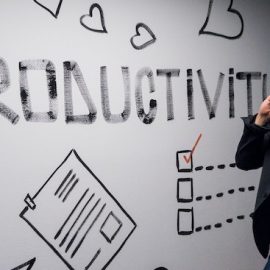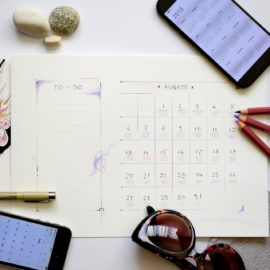

This article is an excerpt from the Shortform book guide to "Girl, Stop Apologizing" by Rachel Hollis. Shortform has the world's best summaries and analyses of books you should be reading.
Like this article? Sign up for a free trial here .
Do you trust your inner voice? Why do many women struggle to trust themselves without validation from men?
Traditionally, voices of authority were male. Although that trend is finally starting to change, many women still subconsciously struggle to trust themselves. This lack of trust and fear of ambition among women has caused a leadership gap in many industries.
Here’s why you need to learn to trust yourself, according to Hollis.
Trust Yourself
Learning to trust yourself as the authority in your life is a deliberate act, and it is the first block you should place on top of your foundation.
Why Is Trusting Yourself a Deliberate Act?
Hollis notes that throughout history, and across the globe, the vast majority of cultures have been patriarchal. This means that the voice of authority in nearly every government and community has been male since the beginning of time.
On a smaller scale, in many (not all) families, the father is the decision maker. So for most of us, the voice of authority growing up was male, and this is now ingrained in our subconscious beliefs about leadership.
If you’re a woman, Hollis says you must rewire this subconscious belief system in order to trust your own authority without the need for male validation. This takes conscious effort.
| The Relationship Between Approval-Seeking and Codependence Codependency is a psychological condition—often experienced by children of alcoholics and addicts—in which one person has an unhealthy need for another person’s approval. Hollis is an admitted codependent. When she was growing up, every decision she made hinged on her father’s potential reaction. She sought his approval and feared his disappointment. After a decade of marriage, Hollis realized she had transferred the position of authority from her father to her husband, and she was now living for his approval and seeking his validation with every decision she made. When Hollis eventually began trusting her own decision-making skills, it was a major catalyst for her success. Codependent No More by Melody Beattie explains this pattern of behavior in depth. Her message (and Hollis’s) is that you can only break free of codependence by recognizing that other people’s thoughts and behavior aren’t your responsibility nor are they within your control. |
Embrace Your Ambition
While civilization has long lauded male ambition, Hollis points out that society often views female ambition as a negative character trait.
Despite the many warnings against female ambition, particularly in social media, Hollis contends that ambition is acceptable for all people. Too often, society attaches qualifiers when discussing female ambition—for instance:
- It’s okay to be ambitious as a woman if you’re not married.
- It’s okay to be ambitious as a woman if you don’t have children.
- It’s okay to be ambitious if you have a traditional job, as opposed to working for yourself or trying to make it in the arts.
All of these qualifiers are unacceptable. As Hollis says, if rules about ambition are to exist, they should exist in the same way for all people in all seasons of their lives.
| Counterargument: Single Women Are Less Likely to Express Ambition According to a study cited by NPR, single women are much less likely to express career ambition than are married women. The leading theory behind this data is that single women fear that having ambition will make them less attractive to men. MBA students at a top university were asked to rate how “driven” they were and list the salary they desired. They were asked to fill out two forms with the same questions: One was to be given to a career counselor, and the other would be visible to their peers. The single women had the greatest discrepancy between their forms. They lowered their salary requirement, number of hours they were willing to work, and their reported ambition level on the form that would be viewed by their peers. |
So what can you do to embrace your ambition? To Hollis, ambition means putting extraordinary effort into your goals. Waking up early, working late into the night, asking for help when you need it, doing research, and taking initiative are all ways that she encourages you to embrace your ambition…unapologetically.
| The Leadership Ambition Gap In Lean In, Sheryl Sandberg (chief operating officer of Facebook) highlights a leadership ambition gap between men and women. One survey she cites showed that twice as many men were interested in leadership roles. While some argue that boys are inherently more interested in leadership than girls, Sandberg believes that the trait is passed down culturally, not biologically. One of the factors to blame, she believes, is the stigma that comes with female ambition. |

———End of Preview———
Like what you just read? Read the rest of the world's best book summary and analysis of Rachel Hollis's "Girl, Stop Apologizing" at Shortform .
Here's what you'll find in our full Girl, Stop Apologizing summary :
- Rachel Hollis's lessons she learned while building a multimillion-dollar company
- Why "having it all" isn't something you should aspire to
- Why women need to stop trying to fit society's idea of a "good woman"






